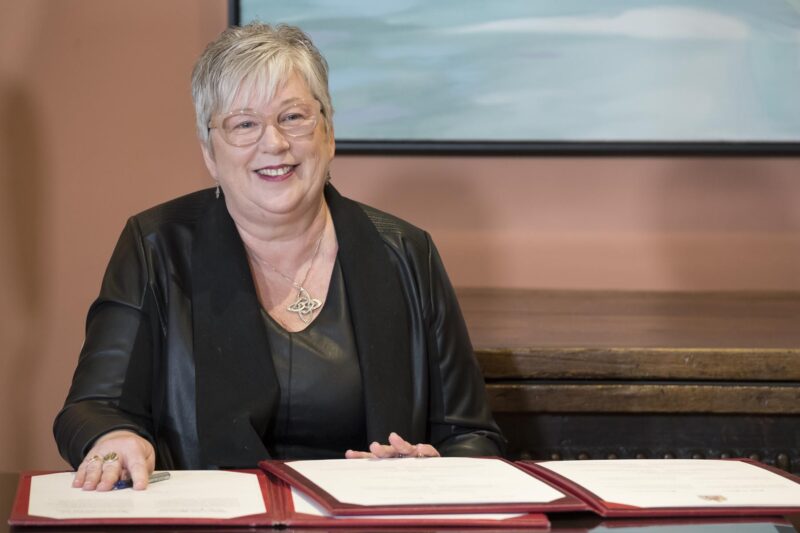Canada wants more input on new Aquaculture Act
DFO has received 22 formal submissions and held 27 virtual engagement sessions as it moves to streamline aquaculture regulations for the sustainable growth of Canada’s seafood farmers
By Fabian Dawson
SeaWestNews
Canada is giving you more time to help it construct the nation’s first ever Aquaculture Act, aimed to streamline the numerous overlapping and complex processes that is hampering the sustainable growth of the country’s seafood farmers.
The new proposed Act, will also help the government, stakeholders and industry to effectively communicate with the public on how modern-day fish and shellfish farms operate.
The current regulatory framework for aquaculture in Canada, involves multiple provincial and federal departments, with Fisheries and Oceans (DFO) as the lead agency. Environment and Climate Change Canada (ECCC), Health Canada, the Canadian Food Inspection Agency (CFIA), and Transport Canada also play roles in the management of aquaculture in Canada.
Canada remains the world’s only major farmed seafood producing country without modern national legislation specifically designed to govern a responsible and sustainable aquaculture industry.
This has led to significant uncertainty for the aquaculture industry, especially for salmon farmers in British Columbia, where there is no clear, predictable path forward for tenure and license renewal.
“Given the recent issues within Canada posed by the Covid-19 pandemic, as well as requests from various stakeholders for additional time, the deadline for comments on the Aquaculture Act discussion document has been extended from the original deadline of January 15th 2020 to February 12th, 2020,” said a DFO spokesperson.
“This extension will allow for further meaningful input into this process,” she said.
So far, DFO has received 22 formal written submissions in response to the discussion paper, and has held 27 virtual engagement sessions with provinces/territories, stakeholders, environmental non-governmental organizations (ENGOs) and Indigenous organizations, including over 350 participants.
The push for a Federal Aquaculture Act has been embraced by a cross section of businesses, industry associations, and individuals across the country, including the Canadian Federation of Agriculture, which says such legislation will improve the country’s food security.
“Aquaculture is the fastest-growing sector of the agriculture industry and a Federal Aquaculture Act will provide a simplified regulatory path to grow our businesses, especially in coastal communities,” said John Paul Fraser, the Executive Director of the B.C. Salmon Farmers Association.
“Such legislation will codify a pathway to establish aquaculture as a legitimate caretaker of Canada’s aquatic resources,” said Fraser.
In BC, the proposed Act is seen as pivotal for salmon farmers who recently announced they are ready to lead Canada’s post-pandemic recovery by directly investing $1.4 billion in innovation, new technology and infrastructure.
The investments through 2050 would create almost 10,000 new jobs and add a cumulative $44 billion in new economic activity to propel Canada’s Blue Economy, said a report by RIAS Inc., an independent economics consulting firm.
The report concluded that Ottawa and Victoria must provide a predicable policy approach towards salmon farming in BC for the planned investments to attain their targets.
The lack of a consistent policy and regulatory aquaculture framework also led to the recent decision to phase out salmon farms in BC’s Discovery Islands, after a campaign by the anti-fish farming lobby.
The anti-fish farming activists have been claiming for years, without any credible evidence, that the salmon farms in the Discovery Islands endanger wild stocks migrating through the area.
In making her decision, Bernadette Jordan, Canada’s Minister of Fisheries and Oceans largely ignored nine peer reviewed scientific studies by her own department, which showed that salmon farms in the area had only minimal impact on wild stocks migrating through the waters off Discovery Islands.
Mowi Canada West, Cermaq Canada and Grieg Seafood BC, have asked the Federal Court for judicial reviews of the government decision, which according to industry estimates, will result in 1,498 people losing their jobs, mostly in the coastal communities of North Vancouver Island.
In addition to the lack of clarity surrounding the decision, the companies are seeking more time to engage with local First Nations regarding their operations in traditional territories.
(Twitter image of Bernadette Jordan, Canada’s Minister of Fisheries and Oceans)

